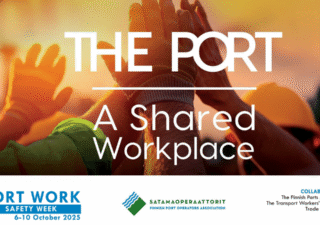Economic Sustainability: ensuring profitability, competitiveness, and operational efficiency
KWH Logistics is guided by values and principles that steer our business decisions. By continuously working on sustainability, we can ensure the future of our business unit and reassure our owners and partners that our operations are conducted responsibly, with long-term focus, and in a sustainable manner.
Economic responsibility for us means ensuring profitability, competitiveness, and operational efficiency. We plan for the long term and make smart investments that benefit our operations, focusing on environmental friendliness, reliable partners, and workplace safety. Economic sustainability also involves the digitization of work processes and the development of working methods to increase efficiency.
Long-term value is created through an active approach to sustainability. In addition to being a potential competitive advantage, sustainability is crucial in reducing the group’s climate impact, managing risks related to climate change, and ensuring fair and democratic communities/societies. ESG efforts are important, as potential shortcomings in this area could lead to a decline in returns and damage the group’s reputation and market position in the long run (KWH Group’s Sustainability Report 2023)
To offer our customers and partners the most sustainable logistics solution, every investment is made with sustainability as a priority.
KWH Logistics invests for the long term and sustainably
Long-term and sustainable investments are extremely important to KWH Logistics. When the EU directive CSRD (Corporate Sustainability Reporting Directive) was implemented in 2023, the requirements for KWH Logistics became stricter, and we must provide our customers and partners with sustainable logistics solutions. The demand for more sustainable practices from customers and partners is growing, and our goal is to ensure that the entire logistics chain operates in the most sustainable way possible.
“When we invest in new machinery, we aim to invest in electric or hybrid machines. Additionally, transitioning to biodiesel significantly reduces emissions. Customers are increasingly demanding more environmentally friendly options, and in some locations, only electric vehicles are used at the moment”, says Anders Back, CFO of KWH Logistics.

Electric vehicles are still evolving
The future goal for ports is to achieve carbon neutrality. KWH Logistics is involved in development projects and has invested in hybrid-powered port cranes. However, efficient electric or hybrid alternatives, such as larger wheel loaders, are not always available. As electric vehicles continue to evolve, this will likely become possible in the near future.
“As an example of developing environmentally friendly logistics solutions, we have been working on the development of electric vehicles and piloted a project that converted a diesel-powered truck to electric power. The project has been successful, and more conversions to electric vehicles are planned” says Back.












